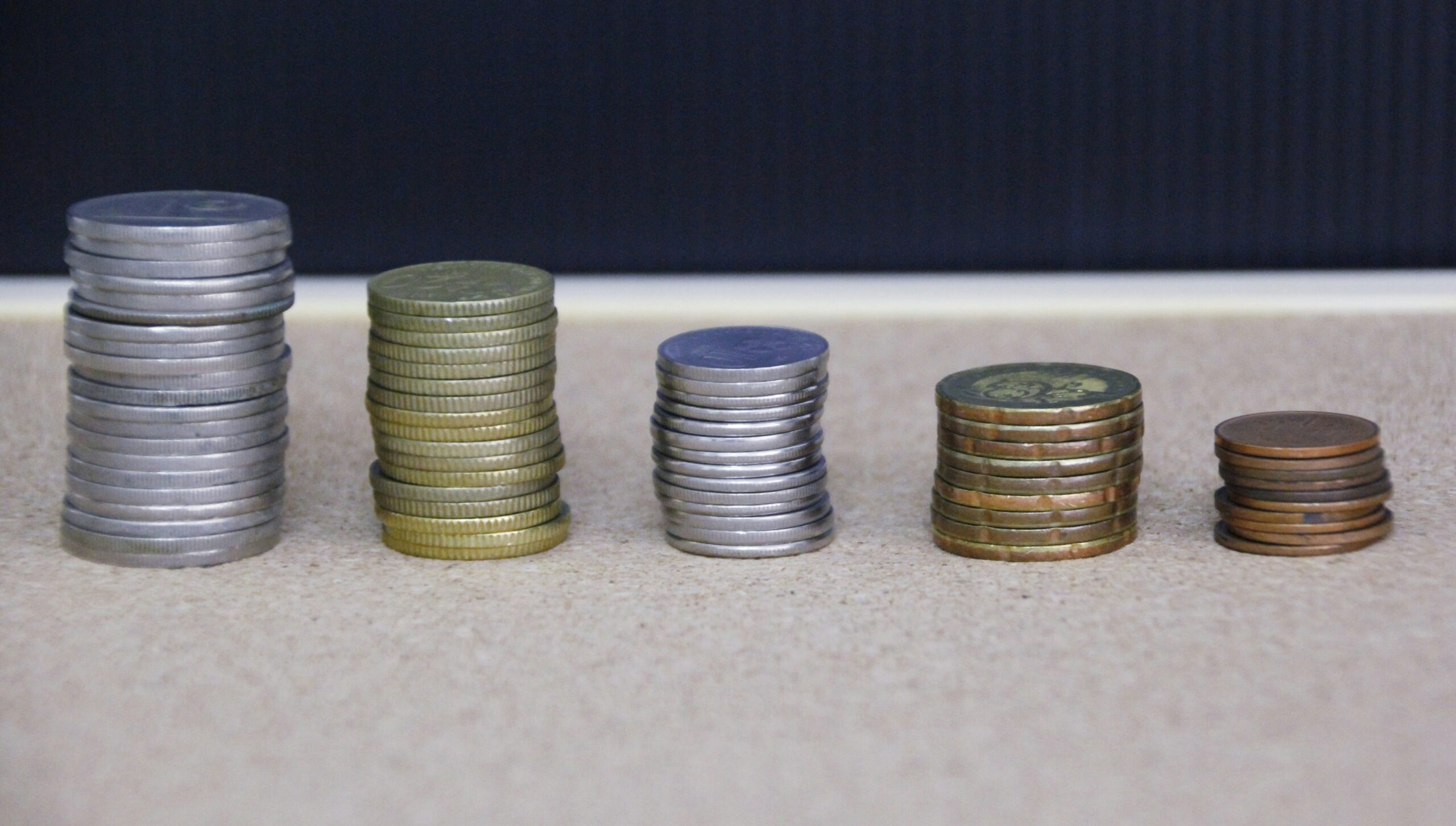If your paycheck looks different every month, you’re not alone. Freelancers, gig workers, commission-based salespeople, and seasonal employees all face the same challenge: it’s hard to budget when you don’t know exactly how much money is coming in. The good news? You can create a financial plan that works, even if your income is unpredictable. The key is learning how to smooth out the highs and lows so you can cover your essentials, save for the future, and avoid money stress.
New to budgeting? Start with the basics in What Is a Budget? Understanding Budgeting.
Budget For Your Lowest Monthly Income Possible
If your income is unpredictable, planning for the best-case scenario can leave you scrambling when a slow month hits. Instead, base your budget on the lowest monthly income you could realistically earn. This approach forces you to prioritize essential expenses and keeps your spending within safe limits. When you have a higher-income month, you can use the surplus to build a savings buffer, pay down debt, or cover occasional extras. By planning for the minimum, you’ll stay financially steady no matter how your income fluctuates.
If you’re working with a smaller budget, check out How to Budget on a Low Income: Practical Tips That Work.
Make Sure Your Regular Bills Are Covered
Irregular income makes it easy to fall behind on recurring expenses, but those bills, like rent, utilities, insurance, and loan payments, should be your top priority. As soon as money comes in, set aside enough to cover these essentials before spending on anything else. You can even keep a separate account just for bills to avoid accidentally dipping into that money. By protecting your core expenses first, you’ll maintain stability and avoid the stress of late fees or service interruptions, even when your income varies from month to month.
Need a simple framework for monthly planning? Read Monthly Budgeting Made Easy: Step-by-Step Guide.
Have an Emergency Fund in Place
When your income is irregular, an emergency fund isn’t just a safety net, it’s a lifeline. This fund covers unexpected expenses like medical bills, car repairs, or sudden drops in income, so you don’t have to rely on credit cards or loans. Aim to save at least three to six months’ worth of essential expenses, starting small if needed. Even setting aside a little from your higher-earning months will add up over time. With a solid emergency fund in place, you’ll have peace of mind knowing you can handle life’s surprises without derailing your budget.
Not sure what an emergency fund should look like? Learn more in What’s An Emergency Fund And How To Build One.
Identify Non-Essential Expenses
When money is tight, knowing where you can cut back is just as important as covering your essentials. Non-essential expenses include things like dining out, entertainment, shopping, subscriptions, and travel, anything that isn’t required to keep your household running. By identifying these costs upfront, you can quickly adjust your spending during low-income months without feeling blindsided. Keep a list of your “nice-to-haves” so you can add them back in when income is strong, but be ready to pause them when necessary. This flexibility helps protect your budget without completely sacrificing enjoyment.
Once your essentials are covered, here’s How to Budget When You Make a Lot of Money so you can use surplus months wisely.
Use the Envelope Method
The envelope method is a simple, hands-on way to control spending, and it works especially well with irregular income. Here’s how it works: assign a set amount of money to different spending categories (like groceries, gas, or entertainment) and keep that cash in separate envelopes. When an envelope is empty, you stop spending in that category until the next budgeting period. You can adapt this digitally with budgeting apps, but the principle is the same, giving every dollar a purpose and avoiding overspending. For irregular earners, this method adds discipline and makes your budget feel more tangible.
Want to try this approach? Read more about it here: How to Use the Cash Envelope Budget System.
Stay Disciplined During High-Income Months
It’s easy to relax your spending habits when you have a big month, but irregular income requires extra discipline when things are going well. Instead of treating extra cash as a green light for splurges, direct it toward your financial priorities, building your buffer fund, paying down debt, or boosting your emergency savings. This way, your high-income months work to support you during leaner times. By resisting the urge to overspend when money is flowing, you’ll create long-term stability and protect yourself from the stress of unpredictable earnings.
Review and Adjust Every Month
With irregular income, your budget can’t be a “set it and forget it” plan. At the end of each month, review what you earned, what you spent, and how well your plan worked. Look for patterns, like months when income tends to drop or expenses tend to spike, and adjust your budget accordingly. Regular check-ins help you stay proactive, catch overspending early, and make smarter decisions for the month ahead. The more consistently you review and tweak your budget, the better you’ll be at navigating the ups and downs of unpredictable income.
FAQs
What is considered irregular income?
Irregular income is any income that changes from month to month. This can include freelance payments, commission-based earnings, gig work, seasonal jobs, or fluctuating business revenue.
How do I create a budget if I don’t know how much I’ll earn?
Start by calculating your lowest possible monthly income based on past earnings. Build your budget around that number so you can always cover your essentials, then treat any extra income as a bonus for savings, debt repayment, or building a buffer.
How much should I keep in a buffer or emergency fund?
For irregular income, aim for at least three to six months of essential expenses in savings. This will help you handle slow months or unexpected costs without relying on credit.
Should I save more during high-income months?
Yes! High-income months are your chance to get ahead. Put extra money toward your buffer fund, emergency savings, and long-term goals before spending on non-essentials.

